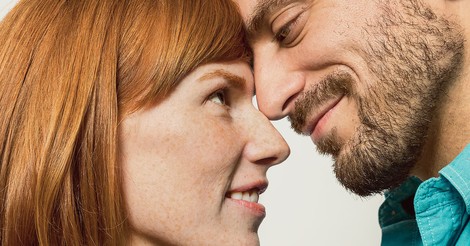Your podcast discovery platform
Curious minds select the most fascinating podcasts from around the world. Discover hand-piqd audio recommendations on your favorite topics.

piqer for: Health and Sanity Global finds
I was born in 1987 in Bucharest. I studied Psychology and Educational Sciences at the University of Bucharest. For two years I worked in a psychotherapy practice, dealing with gambling addicts. I'm an independent reporter, writing and doing video reportages mostly about social and political issues. I am currently based in Jena.
Is An Open Marriage A Happier One?
The author follows the story of a happily married couple from the beginning, through the changes that led them to opening up their marriage, all the way to exploring how it feels and some of the actual stuff people in open marriages do, like, say, the wife taking photos of her husband for the OkCupid dating site and helping him set up his profile. The author gives a short history of how and when open relationships first appeared and how they developed with time. For more than a year, she interviewed over 50 members of open marriages and what came out of that is an article about social constructs, sexuality, flexibility.
The text is entailed to stir mixed feelings in the readers, and it doesn’t fail to do it. Aside from this reason alone, I think it’s an interesting read for anyone who acknowledges that in between the monogamous-polyamorous extremes, there are numerous nuances in a relationship.
“As I talked to couples over the last year, I often found myself reflecting back on my own marriage. I started to feel less baffled by the boldness they were showing in opening up their marriages, and more questioning of my own total aversion to the possibility. In interview transcripts, I saw that I was forever apologizing for my own conventionality. I felt, at times, that I was a rusty caliper, trying to take the measurement of some kind of advanced nanotechnology. I was a blunt instrument, or a chipped mirror: Where I discerned motives of retaliation or evening of scores, I was told to see generosity and understanding. Where I read humiliation into a situation, the people I was interviewing saw a kind of expansive love that defied pride, possessiveness, traditional notions of masculinity and ownership. I kept wanting to define terms — but who is your primary? Whom would you choose in the event of conflicting needs? My instructors were patient but resolute in their overarching easygoingness: It works out, and when it does not, we talk about it and are better for it.”

Further listening: This podcast with Esther Perel http://tim.blog/2017/0...
"Her TED talks on maintaining desire and rethinking infidelity have more than 17 million views, and she’s tested and been exposed to everything imaginable in thirty-four years of running her private therapy practice in New York City."